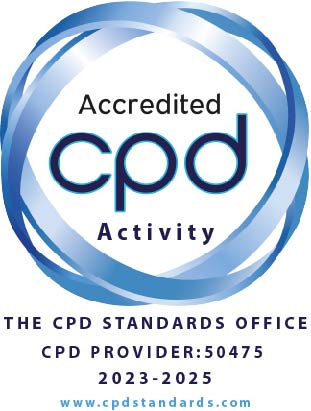The issue of money laundering is gaining momentum, and steps to optimise the process of combating it should aim at its rapid resolution in compliance with all applicable laws.
One of these prevention methods is ALM platforms, which raise awareness among companies on fighting common financial frauds such as money laundering. One such well-established platform, AML Certification Centre, has received course accreditation from the CPD Standards Office.

Worth of CPD Standards Office Accreditation
What is the CPD Standards Office? It means continuing professional development. This term refers to maintaining and developing the knowledge and skills required to work professionally. It can also mean enhancing or taking existing skills to a new level. Alternatively, it is the acquisition of those new skills that enable the specifics of an employee’s role or that prepare them for potential career advancement.
The CPD Standards Office cooperates with various educational institutions, trainers, employers, and academic organisations to customize the recognition of training courses, events, online learning, and coaching. The Office of CPD Standards is in the initial stages of a CPD research project to provide continuous CPD across the country
The primary mission is to enhance the quality of continuing professional development by delivering independent CPD accreditation, thereby ensuring a positive and successful CPD experience.
CPD Accredited Courses from AML Certification Centre
The AML Certification Centre cooperates closely with individuals and businesses. The platform offers a range of courses tailored to companies and regions. The centre has established itself by tailoring its approach to each client looking for courses that meet their specific needs in the financial sector.
To achieve the highest level of compliance with the CPD Standards Office’s demanded standards, it is essential to make a lot of effort, which is what the AML Certification Centre has managed to do, putting it a step above other course, training providers.
CPD accreditation is strictly regulated by authorised accreditation authorities to ensure that the training provider maintains the high standards required by the industry. The CPD accreditations are recognised and respected internationally, with official formal CPD certificates issued and accepted in multiple countries and across all professional sectors.
Courses accredited by a professional bodies such as the CPD Standards Office are more valuable in a peer-to-peer sector. Experts check the quality of each certified training course, so everyone who wishes to study at an AML company will only receive the absolute best.
Concerning the instructors, their professionalism and experience are verified, and students acquire a wealth of knowledge, skills, and abilities required to combat money laundering.
All parts of the course are fully compliant with international CPD standards. Before developing such courses, the AML Certification Centre researches the legal framework of a particular region and strictly adheres to it.
All the students are provided with all the essential training materials and information for each course. Per the AML regulations, the AML company periodically reviews the course to determine whether it should be updated due to new requirements, changes in legislation, or new research.
Everyone who takes a training course from the AML Certification Centre, which the CPD Standards Office has accredited, opens new doors of opportunity, and the knowledge base gained allows you to call yourself an expert.
How does the service obtain CPD accreditation?
- Submission of course materials: The team or person responsible for the course platform submits the required course materials to the accreditation agency, which includes the syllabus, learning objectives, assessment procedures, and any other appropriate documentation.
- Assessment: The CPD accreditation organisation reviews the materials received to determine the extent to which the course meets its established standards and criteria for quality and relevance.
- Site visit: In some circumstances, the accrediting organisation visits the course provider to assess resources and equipment and confirm the accuracy of all materials.
- Approval: Granting CPD accreditation to a course, such as a service, that has met all the requirements. This confirms that the system fulfils all the standards needed for continuing professional development.
- Periodic review: Accreditation agencies sometimes arrange periodic reviews to ensure that the course service continues to be successful and still meets the accreditation standards. Accredited courses are often subject to periodic reviews, which maintain high value and quality.
Therefore, we investigated the benefits of CPD Standards Office accreditation, how to obtain it, and the challenges that training providers face before completing their crucial exam and rising ranking. Thus, the AML Certification Centre managed to go through this process and make itself known to a broader audience.
To achieve CPD accreditation, training providers like the AML Certification Centre submit materials, undergo assessment, and maintain continuous quality standards, ensuring alignment with programs such as the AML Foundations Course. This ensures participants are equipped with essential skills to fight money laundering effectively.







